The assassination of Kandahar’s progressive mayor, Ghulam Haider Hamidi, this week marked the latest in a wave of high-profile killings in Afghanistan, reviving the debate over whether the Taliban is orchestrating a coordinated offensive ahead of America’s troop drawdown. Taliban leaders were quick to claim credit for Hamidi’s death, along with that of Afghan President Hamid Karzai’s half-brother Ahmed Wali Karzai on July 12. However, top American officials in the war-torn country, along with one strategic insider who worked closely with Hamidi, are hesitant to verify the Taliban’s claims. “Whether Hamidi’s killing was really orchestrated by the Taliban is difficult […]
War & Conflict Archive
Free Newsletter
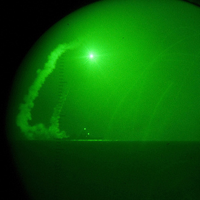
Is it time for NATO to begin wrapping up its Libya operation? The observance of Ramadan will begin in a few days, and even though Islamic tradition permits those involved in combat to be exempted from the requirements of the fast, most analysts expect a dramatic slowdown in major combat operations on the part of both pro-Gadhafi and anti-government forces during August. While NATO spokesmen have indicated that sorties will continue to be flown during the holiday, the pace of combat will lessen. This, in turn, may reinforce conditions on the ground, which Chairman of the Joint Chiefs of Staff […]
The United Nation’s declaration of a famine in two regions of southern Somalia has been accompanied by horrific reports of starvation and news of more than 100,000 internally displaced people flooding into Mogadishu. Already bearing the burden of a 20-year-old civil war, the Somali capital now appears to be emerging as the epicenter of the famine’s misery as well. However, the exodus of starving Somalis may also have volatile regional ramifications, specifically in neighboring Ethiopia and Kenya, says Elizabeth G. Ferris, codirector of the Brookings-LSE Project on Internal Displacement in Washington. Ferris reminded Trend Lines yesterday that Kenya is already […]
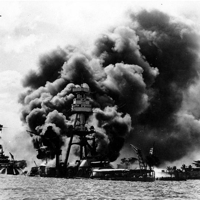
As the father of 2-year-old twin daughters, I often find myself thinking about how international politics and foreign policy will play out across their lives. Of course, parents aren’t the only “institutions” that wonder about the possibility of forecasting and shaping the future. Governments, international organizations and companies make huge investments of both lives and money based on expectations with time horizons of 10, 20 and even 50 years. Nimitz-class aircraft carriers have been in service for more than 30 years and may serve for another 40. The United States is currently wrestling, in a very public manner, with the […]
Earlier this month, U.N.-led negotiations between Cyprus and Turkish Cyprus on the status of the divided island ended without any significant breakthroughs. In an email interview, Michális S. Michael, deputy director of the Center for Dialogue at La Trobe University, discussed the Cyprus talks. WPR: What are the primary areas of progress in talks between Cyprus and Turkish Cyprus, and how do they compare with the final status of talks in 2004? Michális S. Michael: In contrast to 2004, and despite 126 high-level meetings since 2008, little progress has been achieved on the core issues separating the two sides. While […]
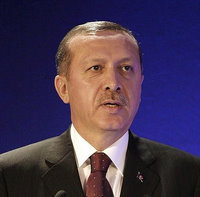
Economic and diplomatic relations between Iran and Turkey have improved significantly in recent years, and for good reason. Each side offers something the other needs. Turkey needs oil and gas for its growing economy and a market for its export products. Iran is Turkey’s second-largest supplier of natural gas and is eager to buy many Turkish products. Iran also needs trade partners who are willing to ignore American and international sanctions to sell it the products others won’t. Turkey has done just that, ignoring the sanctions selectively and periodically. In 2010, for example, Turkey exported gasoline to Iran at a […]
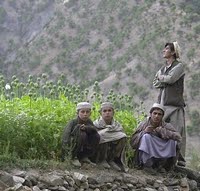
Matthew C. DuPée’s WPR briefing last week on Afghanistan’s counternarcotics efforts skillfully analyzes how U.S, U.N. and Afghan policies are failing to achieve an enduring reduction in the country’s opium production. Now neighboring governments, especially Russia, are growing increasingly worried that NATO’s withdrawal of combat troops from Afghanistan will force them to confront the problem largely by themselves. At present, the main threat Russia faces from Afghanistan comes in the form of Afghan narcotics exports. According to the United Nations, Russians are consuming much of the recent surge in Afghan narcotics production, which has occurred despite stagnant or even declining […]
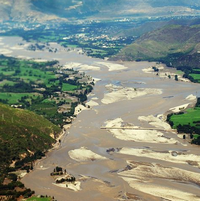
When historians come to write the history of the European Union in the period following the ratification of the Lisbon Treaty in 2009, they are likely to describe it as a litany of jarring crises. They will naturally prioritize the financial shocks to the eurozone in 2010 and 2011. But they will also have to make space for at least two major humanitarian crises that sparked angry debates about the EU’s global role. The first was the earthquake that hit Haiti in January 2010. The second was the man-made disaster in Libya that began in February 2011. The Haitian catastrophe […]
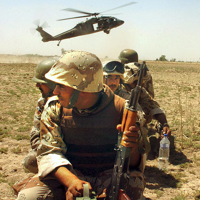
Most experts believe that one of the most catastrophic mistakes made during the U.S. occupation of Iraq was the decision to disband the Iraqi armed forces in May 2003. The question is not merely of interest to historians and those writing “after-action” reports on the Iraq invasion. After all, other Iraq-style regimes — most notably in Syria, Libya and North Korea — are likely to fall in the near future. In all three states, the armed forces are part and parcel of the longstanding political order, and there will be those arguing for their complete dissolution in order to sweep […]
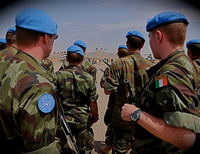
Poland assumed the six-month rotating presidency of the European Union at the beginning of July, at a time when the union’s Common Security and Defense Policy (CSDP) was in need of a boost. With military cooperation among the 27 member states high on Warsaw’s agenda, Poland’s EU presidency might provide the needed stimulus to get EU defense back on track. However, recent disputes within the EU over the NATO-led intervention in Libya, as well as resistance from London, could impede Warsaw’s attempts to accelerate Europe’s defense integration. According to Polish Defense Minister Bogdan Klich, the Polish presidency has four ambitious […]
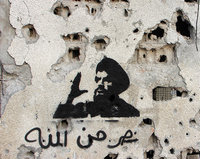
When pro-democracy protesters took on President Hosni Mubarak in Egypt, Hezbollah leader Hassan Nasrallah, watching from his perch in Lebanon, could hardly contain his glee. Arab demonstrators were taking on yet another Sunni dictator who was hostile to Hezbollah. At the time, the Arab Spring looked like good news to the Iran-backed Shiite militants. But the popular revolts did not stop with Hezbollah’s foes. Now that an uprising next door threatens the rule of Syria’s President Bashar al-Assad, one of Hezbollah’s principal patrons, Hezbollah is starting to look less steady. As the wave of popular unrest washes across the region, […]
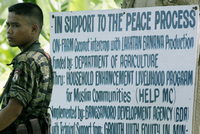
One year after taking office in July 2010, Philippine President Benigno Aquino’s effort to end the country’s decades-long internal conflicts is still stuck in first gear. Aquino has put the highest premium on reaching a political settlement with the Muslim Moro Islamic Liberation Front (MILF) and making inroads with the Maoist front led by the Communist Party of the Philippines (CPP) — while not forgetting the Moro National Liberation Front (MNLF), another Muslim rebel group that signed a final, yet shaky, peace agreement in 1996. In fairness, Aquino has made progress. But doubts remain about whether the steps he has […]
